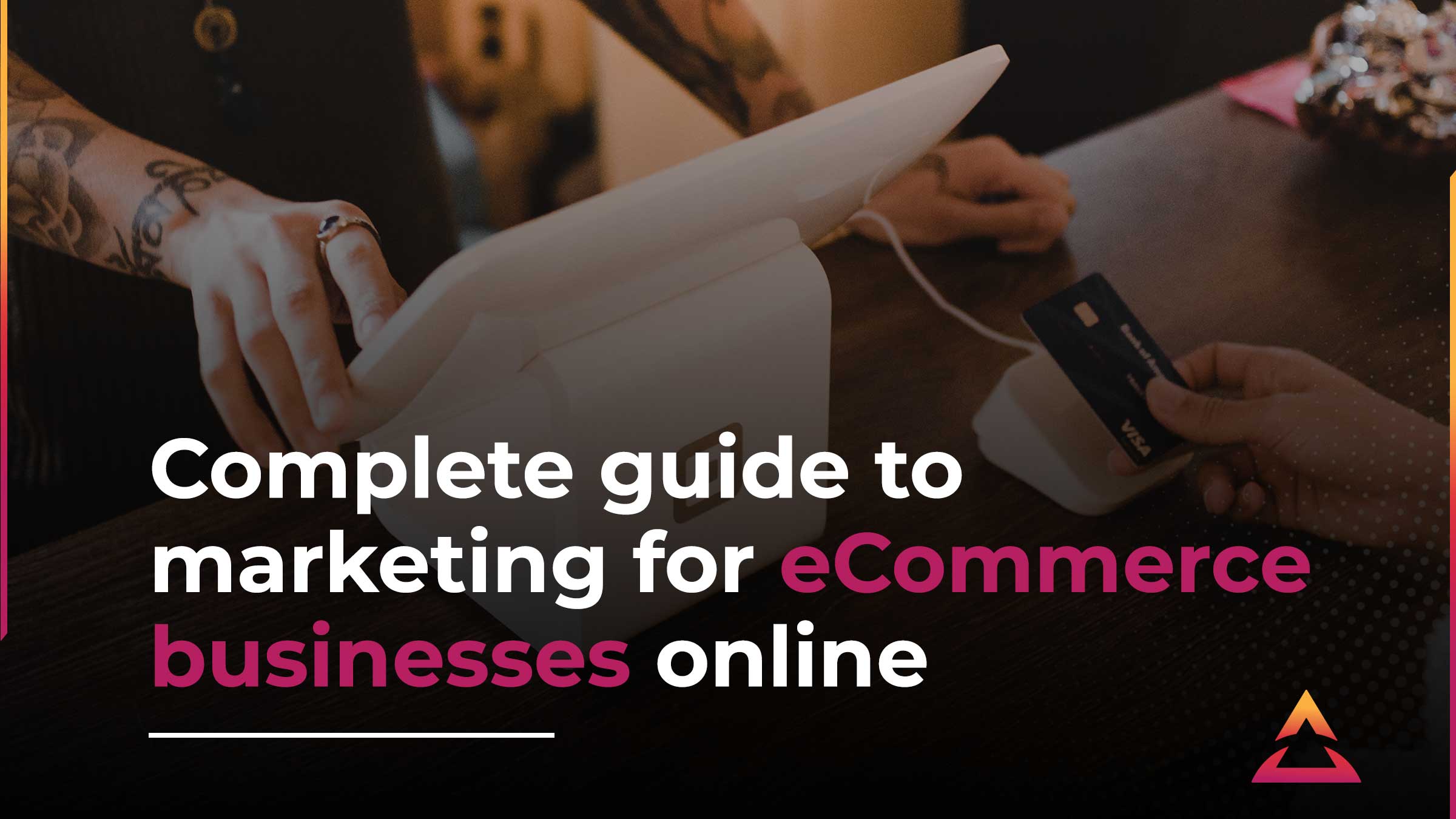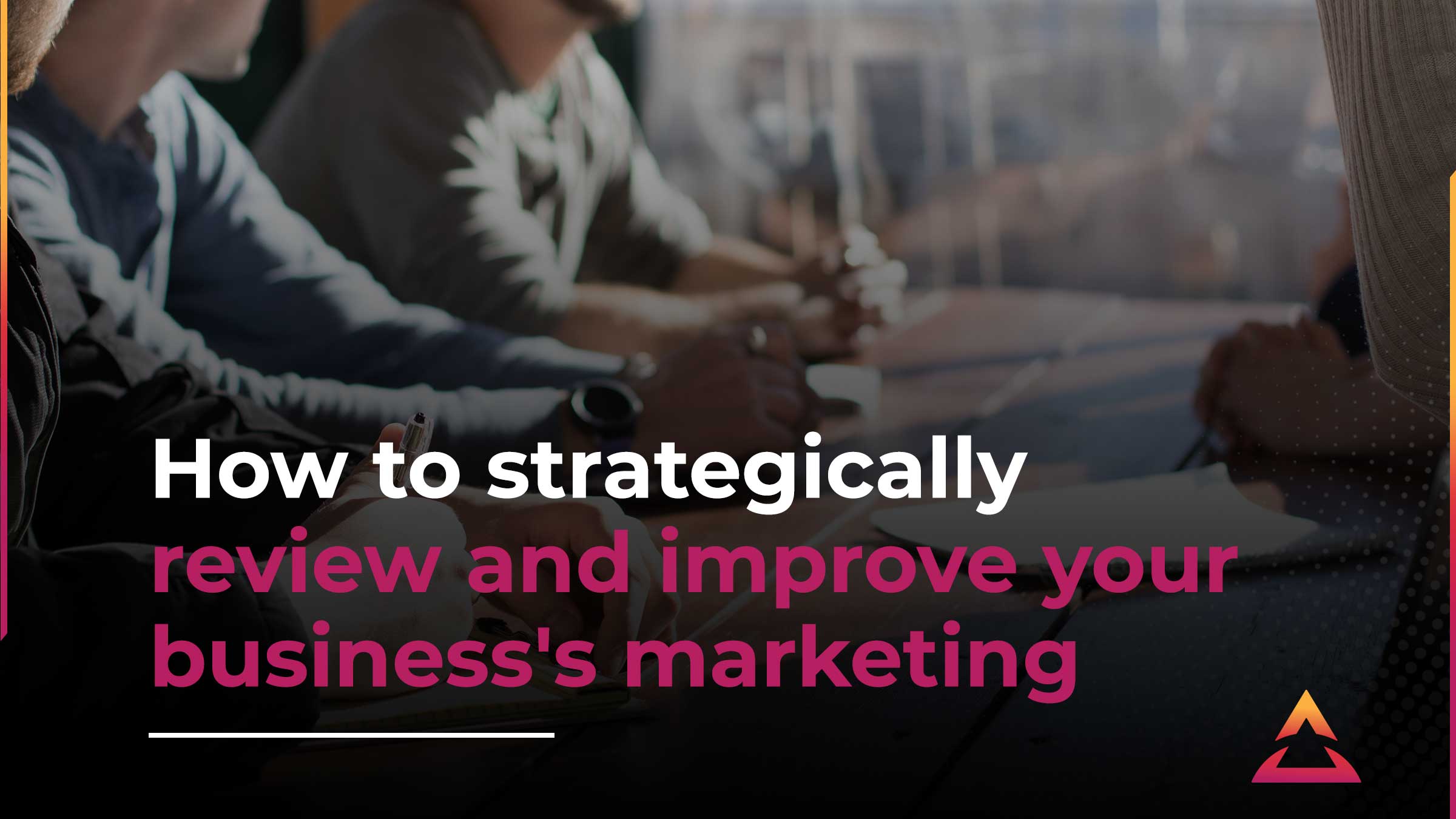
The #1 factor that will help you grow and expand your business, is sales. Do you agree? And in order to get a steady flow of sales, you need qualified customers to find you. That means that you need to be able to market your products and services in a way that resonates them and convinces them to buy from you. With a lot of shutdowns that have happened around the world in the past two years, more people have shifted their buying patterns to online.
What does that mean for you as a business owner, especially if you have a retail store that hasn't been able to meet the sales you've been wanting to, even if you've moved your store to be online as well? You need to learn eCommerce marketing.
In this article, we’re going to break down what eCommerce marketing is, compared to regular marketing and give you some awesome eCommerce marketing strategies to help get your online business growing, booming, and expanding!
If you like what you read here, or it’s not enough and you need more, then follow our link through to the marketing training hub and join our community to learn how to better grow and scale your business.
How is marketing for eCommerce different from a regular retail business?
The goal of your marketing efforts for both eCommerce and a regular retail business are essentially the same - to entice customers to get to know you, like you, trust you, and then spend money with you. However, different marketing environments, in-person versus online, mean there will need to be different marketing strategies that you can implement to better optimise for the environment you're in.
Using translation services can help eCommerce businesses reach a global audience more effectively by ensuring that marketing materials are accurately localized for different languages and cultures.
This can be streamlined further with a platform like globallinkweb.com, which simplifies website localization and streamlines the launch of multilingual websites, allowing businesses to connect with international customers faster.
This enhances the User Experience and increases the likelihood of conversions, as customers are more likely to engage with content that resonates with them linguistically and culturally.
Marketing for regular retail businesses
- There's greater room for creativity when marketing for a regular storefront business. Your campaigns can be more emotional than directed because you have the ability for a customer to walk into a store, experience certain feelings, and then find the product to fulfill that feeling.
- There are many more chances for interaction. Employees in-store can market products and lead a customer down a buyer's journey easier and faster.
- A chance to touch and feel the products, a try-before-you-buy opportunity.
- Ability to reach a large number of potential customers just from foot traffic, essentially 'free' advertising paid by your rent.
Marketing for eCommerce businesses
- The chance to market globally with eCommerce is far greater and much easier to allocate resources to. You're able to target anyone from everywhere instead of relying on just that foot traffic.
- Your marketing needs to be targeted to users looking to buy, rather than browse, to get a better Return-On-Investment (ROI).
- Your communication channels can be powerful. Grabbing someone’s email address gives you a way to follow up with them after they've left your 'store', or website. Pixels on your eCommerce site could also provide you with follow-up opportunities to advertise on social media.
- You can market 24/7 and allow customers to purchase whenever they want at their convenience.
- Implementing an SEO by localization strategy involves optimizing website content and meta-data to target specific geographical regions, utilizing region-specific keywords, and tailoring the SEO approach to align with the cultural and linguistic nuances of the target audience. The longer they stay reading your content, the better the User Experience, and the better the SEO result.
- Utilizing eCommerce tools like SmartScout Rank Tracker is crucial for effective marketing. It allows businesses to monitor and analyze product rankings, identify trends, and optimize listings. This targeted approach helps improve visibility, adjust marketing strategies, and increase profitability.
Essentials for eCommerce marketing
Now that you can see what the differences are with marketing for an online business, let’s expand on the above list of the good things about eCommerce marketing and how you can begin to formulate an eCommerce marketing strategy.
Content marketing
This is the creation and distribution of content online, which promotes your products and services. It speaks with your brand’s voice and carries your brand's values.
The kind of content you can implement with a marketing strategy includes:
- Blogs and articles
- Videos
- Infographics
- Podcasts
These can help you showcase your brand and product or service better, and speak to your customer's problems, challenges, needs or wants too. By providing them with high-quality, informational, educational or entertaining content, they'll likely gain positive associations with your brand and eventually go down the track to purchase from your business one day. Incorporating AI tools into your content creation strategy can further enhance your ability to tailor and deliver impactful messages to your target audience. Moreover, although AI writing software constitutes a potent resource for content generation, it is advisable to employ it alongside an AI detection remover to achieve optimal outcomes.
By being an eCommerce store and building your business and actually doing online marketing, you're able to reach the right people, at the right time, with the right message.
Search Engine Optimisation (SEO)
Search Engine Optimisation, or SEO, is another incredibly important part of your content marketing strategy, especially for eCommerce, since your business is solely online. With the right SEO strategy, your ideal customer will search for a problem, want, or need that you solve or cater to and click onto your website—whether they’re searching for a specific product like a Tissot watch or something else within your niche. Once they're on your website, if your website is optimised for conversion, then they'll likely quickly go down the path to buy from you.
So, how exactly does it work?
- SEO is the use of the right keywords in your content, so when people search for something, your content matches their search intent and is delivered on hopefully, the first page of Google's search results.
- SEO is optimising your website pages and content into hubs that has a smooth user experience, allowing Google and users to easily find content and not have to click around to find it.
- SEO is internal linking from one page to another to boost that page's authority rate within your website, telling users, and Google, that certain pages are more important than others (such as your homepage).
- SEO is targeting keywords in your Page Titles, in the Heading Structure, and the MetaData for your page.
- SEO is doing all of the above and writing it in such a way that your content reads like a human wrote it, and can be easily understood by your target audience. The longer they stay reading your content, the better the User Experience, and the better the SEO result.
When done correctly, it can help bring along free or cheap leads and customers and helps draw people into you instead of you going out searching for customers. This is also all relevant and similar for any paid Google advertising you may do too as mentioned below.
Paid search
Google ads use a Pay Per Click advertising method which is where you bid on search terms and keywords. When someone includes the words you’ve bid for in their search, your page can appear at the top of the search results. It will be tagged with the ‘AD’ symbol, so users know it’s a paid result, but still, you get to be on top of the rankings.
From the same research you've done on the keywords that you want to rank for in organic content, you can bid to be at the very top of results as well.
With paid search, you're able to allocate a budget and stick to it. You can limit your spending and bid for words that are niched to you and don't cost that much.
You must keep track of spending versus revenue so you understand if you have a positive ROI or not as well. If you're not sure how, let us show you on a recent blog we wrote about how to measure ROI in marketing. You don’t want to be spending large amounts of money on paid search if you’re not getting a result.
Social media
Having a branded social media presence is almost a requirement in this eCommerce environment. The number of users on Facebook, Instagram, LinkedIn, TikTok, YouTube, Twitter, and any other social platform is astronomical, and continues to grow every day. And with newer platforms such as TikTok, the chances to be discovered is much higher.
Now, you don’t want to randomly throw your content onto social media, you need to have a budget and a strategy on social media. Ask:
- What kind of content is appropriate for what kind of social media channel?
- How often should you post to social media?
- What time of day is better for different channels, and when is your target audience online?
- If there is a Call-To-Action (CTA), where do you want to send people who click?
- What are the rules for each different social media channel?
- What are my goals with social media?
Think about the content you create for your blog or podcast as mentioned in the content strategy section. Which of those content pieces might suit a TikTok audience, or a LinkedIn audience, or Instagram better? Not sure how to match the right content to the right platform? Let us take you through our Ultimate Social Media playbook that will teach you everything there is to know about how to do this.
Social media advertising
Once you've got your organic content strategy prepared, it's time to hit paid advertising on social media. Facebook is one of the most targeted advertising platforms in the world right now, allowing you to target very specific demographics and interests. They also include the ability to advertise on Instagram.
Again, a strategy is required so you don’t waste money on paid ads.
- Set a spending limit to fit within your budget
- Research your target audience and customise your ads to reach them
- Use the tools Facebook has to find your target audience
- Use the reporting tools so you can understand the results you get from your campaigns
- Use eye-catching images, enticing copy, and clear calls to action
- And test, test, test to see what actually works! (This is for everything you do)
With an eCommerce store, you get the ability to drive customers to your online store and purchase anytime. That means your targeting should reflect this. Whereas, if you were just marketing for retail, you'd focus on your local area only versus your entire country, or even globally, for example.
Email marketing
Yes, email marketing is still effective and still in use today. Grabbing someone’s name and email address to add to your list is one of the powerful marketing tools because that's your platform to speak directly to your customer. Being able to reach them in their email box, and then getting them to one-click straight to your product is very effective.
Subscription to your email can also lead to an exclusive club kind of feel. Special deals or new products? Tell the people who subscribe to you first, so they get the first chance at grabbing your awesome deal.
Remember to not email too often, otherwise you may be considered spam by their email provider.
Influencer marketing
Influencer marketing has helped many business owners blow up to 7 and 8-figures quickly in the past few years, especially eCommerce stores. It's where you find someone who has a lot of social media followers and influence, and they use and promote your product or service to their followers in the hope that their followers see the product in use and go buy it themselves.
Research your influencers and make sure they’re relevant to the field you’re in. It’s best to have a solid, optimized influencer marketing strategy for every platform where your business can benefit. You might not want an influencer who only speaks about beauty to their followers promoting your services if it's an accounting or online bookkeeping business. There could be a real disconnect between your product and their audience.
How should you budget for marketing?
It can sometimes be easy to throw a lot of money at marketing and get nothing back, or go the other way and not spend enough on marketing because you struggle to see the value in some of the options out there to market yourself.
There's a quick and easy rule of thumb when it comes to a marketing budget:
- 5-7% of your revenue will maintain your current level of business
- 7-10% of your revenue will grow your business
- 10-20% of your revenue will accelerate your business’s growth aggressively
These figures can change depending on a few factors, such as what is your competition like? If you have fierce competition in your field you may need to spend more initially to sway customers to your brand. Are your current methods working? Do you need to spend more on a new channel to get it off the ground? Do you have the budget for it based on your previous years' growth? Is there another area you need to focus on first, especially if the business has been struggling recently?
Sometimes it's about just focusing on getting your organic content marketing right first instead of starting off with only paid advertising if you don't have the budget for it yet! That way you can learn how to produce high quality content that converts and then replicate that content on your paid side.
We’ve talked about marketing budgets in more detail with this article, so click through and have a read.
Key takeaways
Having an eCommerce business either along with your retail store or just simply as an online store is a great way to reach more people but it won't survive without marketing. Today, we've listed some unique eCommerce marketing strategies to help you get ahead of any retail challenges you may have been facing for the past two years.
If you plan and strategise your eCommerce marketing, you could achieve lots of success with some minimal effort. Want to learn more from industry experts? Let our team at The Entourage help you with your marketing with leading business and marketing training and coaching. Find out more about our Marketing training today.
Related Posts
Join the movement.
Your Entourage journey starts here. Join Australia's largest community of over 500,000 business owners and entrepreneurs, and receive instant access to exclusive content and updates delivered straight to your inbox.




